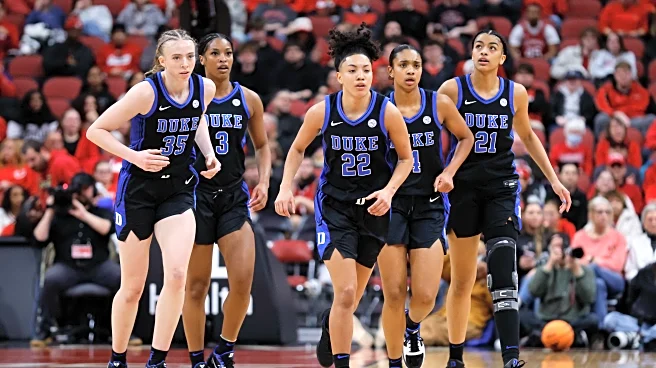What's Happening?
The NFL has confirmed that Bad Bunny will headline the Super Bowl LX halftime show on February 8, 2026, at Levi's Stadium in Santa Clara, California. Despite a petition with over 70,000 signatures advocating
for George Strait to replace him, NFL Commissioner Roger Goodell announced that Bad Bunny will not be replaced. The decision has sparked controversy, particularly among conservative groups who argue that Bad Bunny does not represent traditional American values due to his performances primarily in Spanish. The NFL's choice reflects Bad Bunny's global popularity and streaming dominance, positioning him as a significant entertainment figure.
Why It's Important?
The decision to feature Bad Bunny at the Super Bowl halftime show highlights the intersection of entertainment and cultural representation in America. The halftime show is one of the most-watched televised events, reaching over 100 million viewers annually. Bad Bunny's selection signifies a shift towards inclusivity and diversity in mainstream media, challenging traditional norms. While the controversy has increased interest in the performance, it also underscores ongoing cultural debates about representation and identity in the U.S. The NFL's choice may influence future decisions regarding halftime show performers, emphasizing global appeal and diverse cultural elements.
What's Next?
As the Super Bowl approaches, anticipation builds around Bad Bunny's performance, with expectations of record-breaking viewership. The artist is likely to incorporate Puerto Rican cultural elements into his show, potentially inviting surprise guests. Conservative groups may organize protests during the broadcast, reflecting the divided public opinion. The outcome of this event could shape future hiring decisions for halftime shows, as the NFL continues to balance entertainment value with cultural representation.
Beyond the Headlines
The backlash against Bad Bunny's selection highlights broader cultural tensions in America, where debates about what constitutes 'American values' persist. The controversy may prompt discussions about the role of language and cultural diversity in national events, influencing how entertainment platforms address inclusivity. Bad Bunny's unapologetic embrace of his heritage and language challenges stereotypes and promotes a more inclusive cultural narrative.











